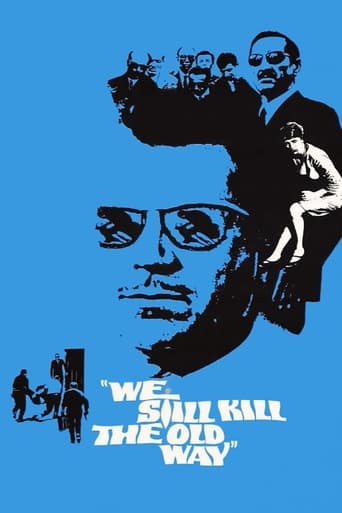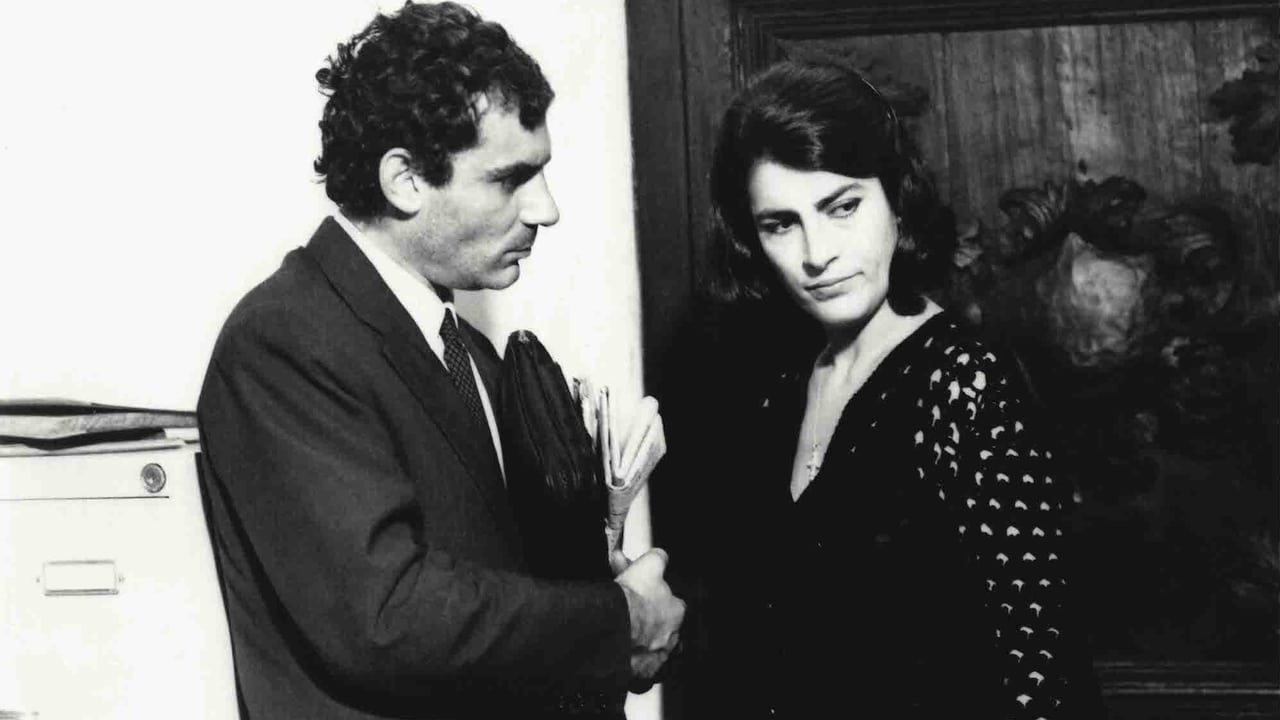christopher-underwood
This is a good, solid, beautifully photographed crime thriller. My misfortune was to pick this film to watch the night after watching, Illustrious Corpses. Now that Italian political crime thriller made in 1976 and based upon a book by Leonardo Sciascia is a near faultless classic with deep undertones and a broad scope that is simply a joy to watch. This, it turns out, is another film based upon another book by Leonardo Sciascia from 1967. How much more sensible it would have been to watch this one first. The thing is there is nothing wrong with this film except it is also about too easily explained killings that the lead character sets out to investigate and in the process overturns a hornets' nest, but there is much less action, intrigue and politics. Gian Maria Velonte is excellent as the professor who takes it upon himself to get involved when most people seem not to care. Interestingly this was the film that helped to lift this actor into more 'serious' films, after having made many spaghetti westerns, one of the last being face to Face also from 1967 when he also played a professor.
cezy_ur
"A Ciascuno il suo" is based on the homonymous book by Leonardo Sciascia, and just like many of the author's books is an unconventional detective story aimed at unveiling the hypocrisy and immorality of Sicilian society. The story begins with a man showing his friends a few threat letters. A few days later he gets shot together with one of his friends, a chemist. The murder is filed under "honour crime" (delitto d'onore) a murder committed out of passion and jealousy, and a peasant is convicted for it. Gian Maria Volonté is an awkward school professor who believes in the peasant's innocence, and decides to investigate the crime. His infatuation with the beautiful wife of the victim also plays a part in his decision to solve the mystery. As the story unveils, he will discover unpleasant truths, but will continue with the investigation despite all dangers. Volonté is as formidable as always, changing his accent and posture to fit the part. But the real protagonist is the Sicilian landscape in all its harsh brightness. The cinematography is such that we can almost feel the wind, the sun and the dryness of the air. When I first watched this film I wondered whether anyone who was not Sicilian or familiar with Sciascia's writing would understand all its complexity, but Elio Petri does a masterful job in transposing the book.
MARIO GAUCI
Goodish blend of Mafia movie (still pretty much uncharted territory at the time) and political thriller, with a hesitant romance thrown in for good measure; the result is generally absorbing, thanks largely to uniformly excellent performances, gleaming location photography (Sicily, of course) and a wonderful score by the ever-reliable Luis Enrique Bacalov. Heading the cast is Gian Maria Volonte': the film launched the political/social conscience phase of his career after a stint doing Spaghetti Westerns. His character is that of an intellectual loner who finds himself in over his head when he starts probing into the assassination of two friends including philanderer Luigi Pistilli which leads to his falling for the other's wife (Irene Papas). Though the identity of the villain (as ever, an eminent member of the community and far closer to the hero than he envisaged) comes as no real surprise, the investigation involving, among other things, the hushed participation of cleric and senator alike and the disquieting revelations that emerge from it, lends the whole a deeply cynical tone (culminating in the downbeat climax depicting Volonte''s own extreme fate) while cementing the Mafia's reputation as strictly a 'family business'. The Italian DVD includes an interesting half-hour featurette detailing the making and reception of the award-winning film (including the fact that the author of the source novel, Leonardo Sciascia, was dissatisfied with how the script turned out); the interviewees are co-scriptwriter Ugo Pirro, the wife of the late Elio Petri, and composer Bacalov (who is regretful that, given his felicitous working relationship with the director here, the opportunity never arose for another collaboration).
susanascot
Paolo Laurana is a kind of leftist intellectual who chances to be intrigued by a mysterious double murder in the Sicily of mid Sixties. In his personal detection for murder's instigators, he will run into a plot in which both politicians and mafia racketeers are involved. So curiosity will become a very dangerous affair. Taken from a novel by Leonardo Sciascia (1921-1989), A ciascuno il suo (1967) is a film where high rank acting is at its top. Cast (Gianmaria Volonté, Irene Papas, Gabriele Ferzetti, Salvo Randone, Luigi Pistilli. Mario Scaccia, Leopoldo Trieste) is perfect and well-combined, direction (Elio Petri, 1929-1982) is powerful and impressive. If compared to the novel, Elio Petri's film (written with Ugo Pirro) may seem short of that illuministic pessimism that breathes through Sciascia's books, but Laurana's rationalistic search for truth retains that `bitter taste of intelligence' which is one of the major feature of Sciascia's characters. A key film to understand historical condition of Italy in the Sixties.


 AD
AD


